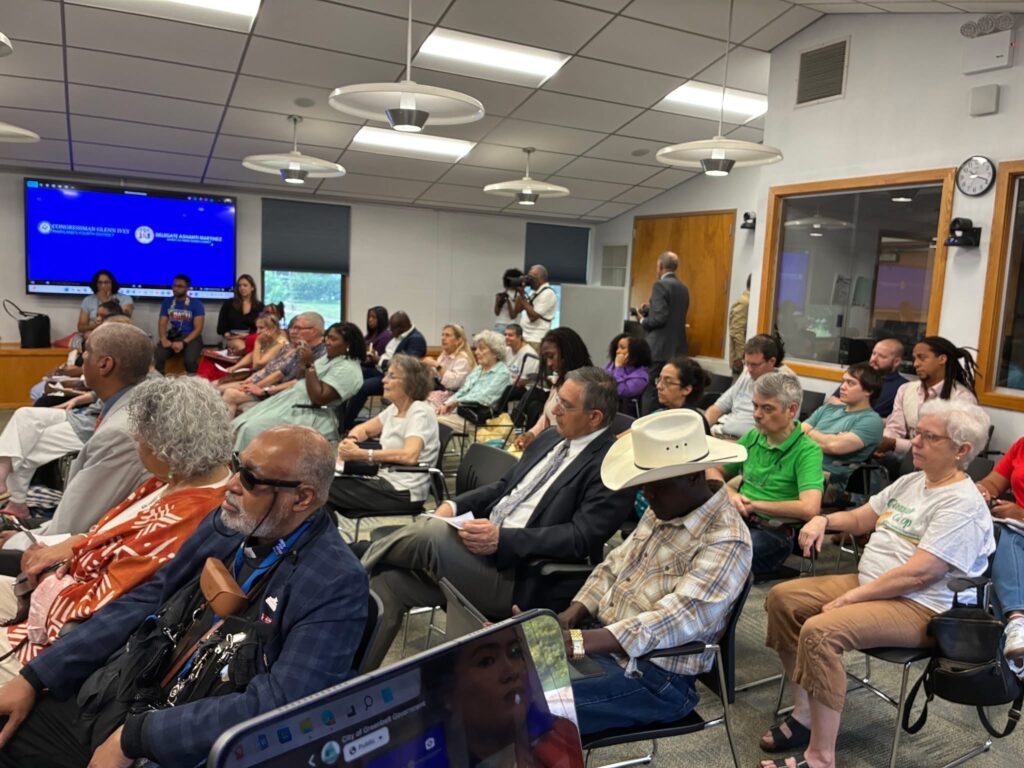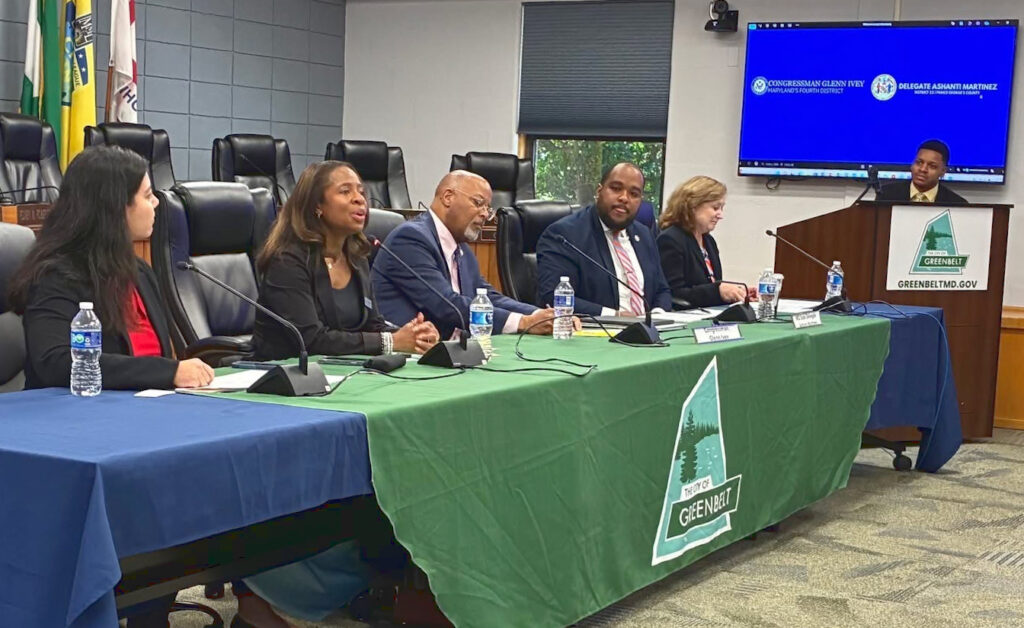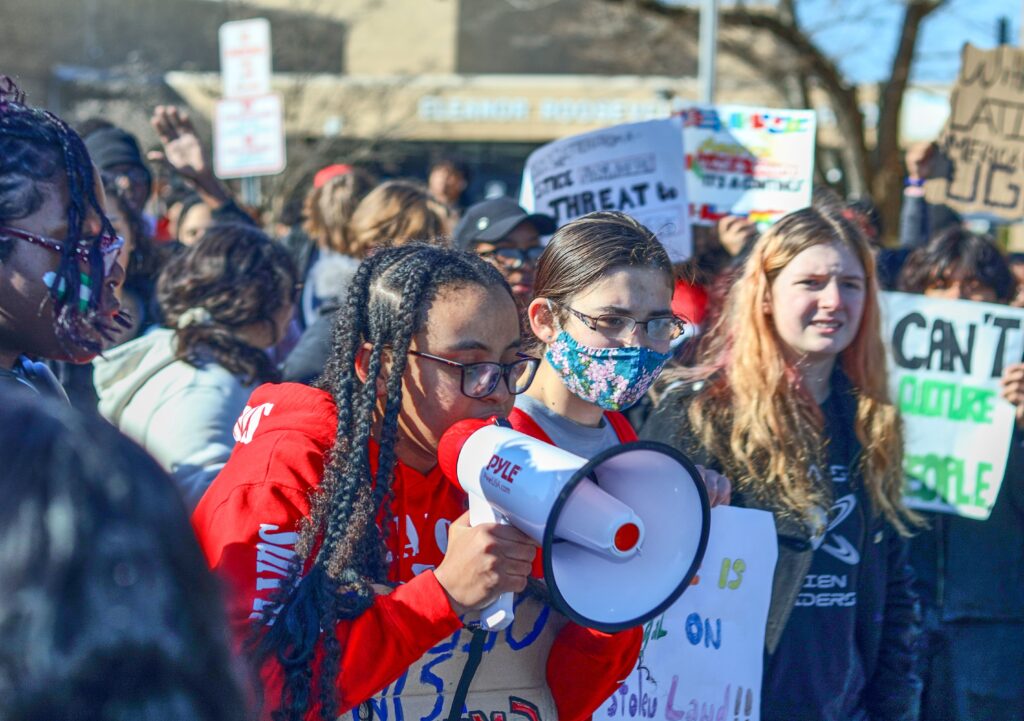Last Wednesday marked the 60th anniversary of Medicare and Medicaid, on which local and federal leaders gathered in the Greenbelt City Council chambers to celebrate the programs’ legacy and warn of federal changes that could strip health coverage from thousands of Marylanders.
U.S. Representative Glenn Ivey and State Delegate Ashanti Martinez headlined the event, along with public health leaders from Prince George’s County. They discussed the positive impacts of Medicaid and health equity in Maryland, and how the Trump Administration’s “One Big Beautiful Bill Act”
(OBBBA) threatens to undo significant progress.
“Medicaid has made a huge difference in the lives of the American people,” said Ivey. “That’s why it’s been so shocking and disappointing that the Trump Administration passed the largest cut in history.”
The Congressional Budget Office estimated that the
OBBBA will cut federal spending on Medicaid and the Children’s Health Insurance Program (CHIP) by an estimated trillion dollars.
Ivey noted that the budget cuts are estimated to affect 17 million people nationwide. “Whether we like it or not, that bill has passed. We have to work together now, at every level of government, to protect our people,” said Ivey.
Martinez, representing Maryland’s 22nd legislative district and sitting on the Health and Government Operations Committee, emphasized the state’s responsibility to step up to protect its people.
“Fortunately, some of the biggest cuts won’t hit for a few years, but we need to prepare,” Martinez said. “Where the federal government folds, Maryland has to step up.”
The proposed changes will significantly impact the roughly 331,000 Marylanders making up Medicaid’s expanded population, as well as immigrants and Deferred Action Childhood Arrival (DACA) recipients, according to Michele Eberle, executive director of the Maryland Health Benefit Exchange.
Eberle is a longtime health policy expert and explained many of the upcoming healthcare changes under the OBBBA.
Beginning in January 2027, Medicaid’s expanded population will have to verify every six months that they are still eligible for coverage, a change she estimated will double administrative costs and likely lead to coverage gaps.
Eberle noted that enhanced federal tax credits that help 70,000 Marylanders afford private health insurance are set to expire at the end of this year.
“If Congress doesn’t act, many will lose coverage, and it could drive up costs for everyone else in the marketplace,” she said.
Eberle also explained that immigrant communities will be hit especially hard. Any DACA recipients who were deemed lawfully present are no longer deemed lawfully present and are ineligible for coverage effective August 25. She also warned that changes to immigrant eligibility (October 1, 2026) and the expiration of federal premium tax credits could leave tens of thousands without affordable coverage by early 2026.
Dr. Sonya Bruton is the CEO of CCI Health Services, serving 45,000 patients last year, of whom 58 percent were supported by Medicaid. She warned that with these cuts, health disparities will grow.
“Medicaid is a tool for
equity,” Bruton said. “So when it becomes health equity, it is literally a pathway for reducing health disparities, for preventing illnesses from entering into the community and threatening the health and well-being of all of us.”
Despite the grim projections, the panelists highlighted Maryland’s efforts to protect its community.
Stephanie Klapper, deputy director of the Maryland Healthcare for All Coalition, cited the state’s Prescription Drug Affordability Board, the first of its kind, which now has the power to cap high drug prices for all Maryland residents. She also pointed to Maryland’s Easy Enrollment Program, which connects people to health coverage through tax returns and unemployment forms.
Ivey noted that Wednesday’s event was part of a nationwide effort by House Democrats to educate communities about the bill’s impact, in which more than 100 similar events occurred across the country that day.
“Knowledge is power,” he said. “And there’s a lot of misinformation we need to fight.”
“Federal changes are coming,” Eberle said. “But we are still here … to help you and we will increase our support.”
Ellie Jornlin is a University of Maryland student at the Philip Merrill College of Journalism interning with the Greenbelt News Review.




